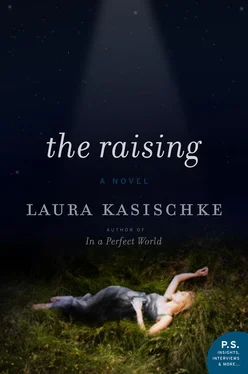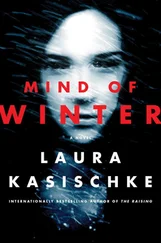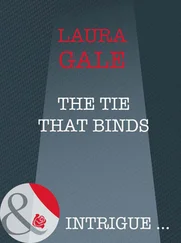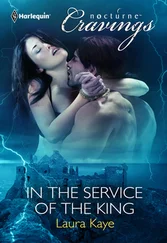Perry tapped his pencil over a sentence from that day’s reading:
H. Guntert: Larve (Ger. Mask ) is etymologically connected with the hidden spirits of the Kingdom of the Dead, the Lares (Lat.), and their name is cognate with latere (to be hidden or to keep oneself hidden) and Latona, the goddess of death ( Leto in Greek), and gives expression to human’s immediate feeling about the corpse—the visible presence of the body, and the deepest concealment of the person.
He wanted to ask Professor Polson there in class, instead of in her office (where she often seemed too preoccupied about childcare to talk about the subject at any length), if she had any thoughts on this, if she thought that this idea of seeing the dead one’s body, and recognizing that his or her soul was no longer animating it, was the basis of even more superstition and folklore. He had, himself, some ideas about this.
But she was answering some bland question presented to her by Elwood Campbell about why, given the horrors of putrefaction, so many people were not repulsed by the dead, but fascinated by them, wanted to see pictures of them. “What about people who love to look at gore?” he asked, and snickered. Perry suspected Elwood was speaking for himself. He’d been one of the students who hadn’t lunged forward to get a closer look at Marilyn Monroe’s morgue photograph, and Perry had the impression it was because Elwood was already familiar with it, that he was probably one of those guys trolling the gore.com-type websites, or posting things on them.
“How about necrophilia types? Right?” Elwood prompted. “You know, people who want to have sex with corpses?”
A few of the girls shook their heads and glanced at one another uncomfortably, but Professor Polson didn’t bat an eye.
“‘And so all the night-tide I lie down by the side / Of my darling—my darling—my life and my bride / In the sepulchre there by the sea…’ Poe,” she said, “was only one of many poets and philosophers who has described the death of a young woman as one of the most beautiful sights one could behold.”
“Yeah,” Elwood said, seeming to take this as affirmation of his opinion.
“Kind of puts the ‘fun’ back into funeral ,” Brett Barber said, and almost everyone burst out laughing, but none laughed as hard as Elwood.
“On that note,” Professor Polson said, shaking her head, “we’re done for today. See you Tuesday.”
She didn’t wait for the students to leave before she herself left, and she wasn’t in her office when Perry passed by it a little later.
“Sweetheart,” Perry’s mother said when he talked to her on the phone that evening. “Is everything all right?”
“Of course, Mom. Everything’s fine. Don’t worry so much, okay?”
“Is Craig okay?”
“Craig’s okay. Not great. But he’s definitely okay.”
“You’re a good friend, Perry. I’m proud of you for sticking by him. That poor boy. Tell him we said hello, okay? Bring him to visit, if—”
“That wouldn’t be a good idea,” Perry said.
“No, of course not. I don’t know what I was thinking. I just wish we could do something to—”
Despite the outpouring of animosity toward Craig in Bad Axe (someone had actually put up a Wanted poster in Leazenby Park with Craig’s photograph and “For Murder” scrawled in red Magic Marker underneath, and this had made the papers all over the state), Perry’s mother believed absolutely that the accident that had killed Nicole had not been Craig’s fault. Even before the blood tests came back and showed conclusively that Craig hadn’t been drinking, hadn’t been smoking dope, she’d believed Perry that driving drunk wasn’t something Craig would have done.
“How are things there?” Perry asked. “With you guys? Is business good?”
“Oh,” his mother said. “You know your dad. He wouldn’t tell me one way or another. We could be billionaires or in debt to our eyeballs for all I know. But he’s making enough money to pay for that boat of his. And I got a new winter coat.” (It was a game his mother always played, and they both knew it was a game. She was, after all, the one who kept the books for Edwards and Son. She probably made 90 percent of their business decisions without bothering to let Perry’s father in on them.) “Yesterday,” she said, her tone becoming lower, more somber. “I saw the Werner sisters.”
“Oh,” Perry said. “Where?”
“At the cemetery.”
“Why were you at the cemetery, Mom?”
“I was just driving by. I could see them from the road. They were putting flowers on Nicole’s grave. So I pulled over. It was her birthday, Perry. Her nineteenth.”
“Jesus,” Perry said.
His mother didn’t bother to scold him for taking the Lord’s name in vain. She said, “I know.”
It surprised him that he hadn’t realized, hadn’t remembered, that it was Nicole’s birthday. Now, he recalled all those early-October cupcakes in elementary school and, during middle school, all the girls getting excited about some slumber party Nicole was having. There was a lot of hoopla every year surrounding her birthday. Her locker decorated, singing in the cafeteria, that sort of thing. (She’d always been the most popular girl in every class.)
Now her sisters were gathering in the cemetery to decorate her grave.
“How did they seem?” Perry asked. “Her sisters?”
“Well, about like you’d imagine,” his mother said, and then said no more, as if he could imagine. But he couldn’t. He really could not imagine them in a cemetery. Those perky blondes, and all that laughter. He couldn’t imagine them bent over any grave at all, let alone their little sister’s. “They didn’t have anything good to say about Craig,” she said, “as you’d imagine. I didn’t tell them he was your roommate again. I don’t think they know you even know him, and I think that’s just as well.”
“Yeah,” Perry said, and then thought, Shit.
Had Craig known it was Nicole’s birthday?
Surely, he had.
Was that why he’d hurried out of the apartment so early that morning and Perry hadn’t seen him all day?
Who knew how many anniversaries of this or that thing—her birthday, their first date, their first kiss, the day he’d given her that amber ring—Craig was living through, and would live through? He wasn’t going to tell Perry about them, Perry was pretty sure, but he still felt like a bad friend for not knowing.
“They told me that their parents aren’t doing so well, Perry,” his mother said. He waited for her to go on, but she said nothing more about Mr. and Mrs. Werner. They talked, instead, about the Bad Axe football team—the worst season in a decade, although they never had been very good.
As his mother spoke, Perry walked over to his desk, pulled open a drawer, and took out a folder. He slid the photograph out, laid it on his desk, pulled the chain on his desk lamp, and bent over it, looking straight down into the glossy image, where, in the corner, blurred but familiar, he saw the fleeing form of the girl he knew—he knew— was Nicole Werner.
He stared until his eyes went dry, and he had to blink as his mother told him more of the details of the family business, of her days, of how much she loved and missed him.
“I love you, too,” Perry said.
“You be good. Stay safe. Eat vegetables. Get enough sleep. Don’t—”
He closed his eyes and flipped the photograph over on his desk so he could focus.
“I’m fine,” he said. “Everything’s fine. Tell Dad I love him. I’ll see you soon.”
“What is this?” Mira asked. She was trying to control the alarm in her voice, so the question came out breathy, hoarse, as if she were doing an imitation of Marilyn Monroe.
Читать дальше












